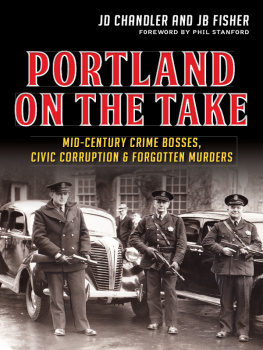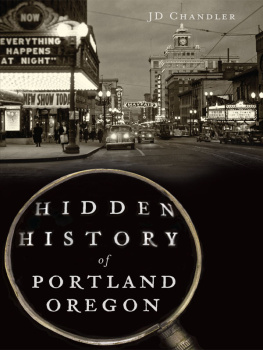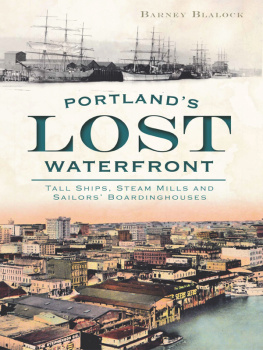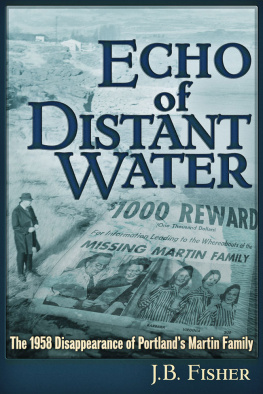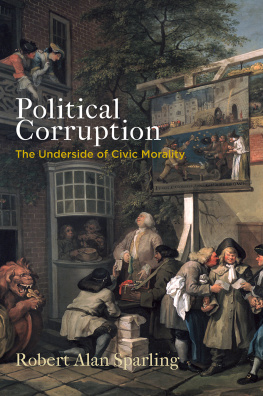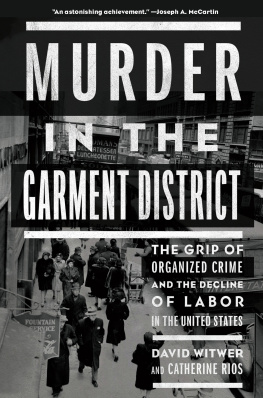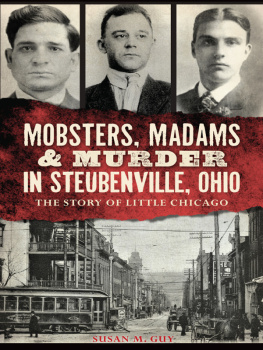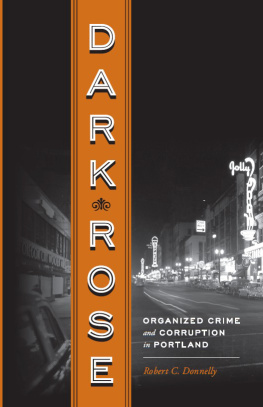

Published by The History Press
Charleston, SC 29403
www.historypress.net
Copyright 2014 by JD Chandler and JB Fisher
All rights reserved
Front cover: Police Shotgun Squad. Courtesy of the Portland Police Historical Society.
First published 2014
e-book edition 2014
ISBN 978.1.62585.274.8
Library of Congress Control Number: 2014953176
print edition ISBN 978.1.62619.749.7
Notice: The information in this book is true and complete to the best of our knowledge. It is offered without guarantee on the part of the author or The History Press. The author and The History Press disclaim all liability in connection with the use of this book.
All rights reserved. No part of this book may be reproduced or transmitted in any form whatsoever without prior written permission from the publisher except in the case of brief quotations embodied in critical articles and reviews.
To Walter Graven, Earl Anderson, Howard Hanson, Frank Springer, Don Dupay and all those who did their best.
The past lies as a nightmare upon the present.
Thomas Paine
CONTENTS
FOREWORD
Its always a shock to see how interesting Portland history is once you get past the usual pieties and self-serving narratives of the people who ran the show and generally got away with it all. But the truth is that for much of its existence, starting immediately after the Civil War and continuing at least up to the dawn of the present era, the Rose City has been a hotbed of crime and corruption, watered and fertilizedif youll pardon the overuse of the metaphorby the payoff system.
Under this time-honored arrangement, if you wanted to operate any sort of illegal business in Portlandgambling, prostitution, narcotics, you name itall you had to do was pay off the cops, who would, in turn, pass along a proper share of the take to their bosses in city hall. For decadesespecially from the 1930s to the 50s, which is the period Portland on the Take focuses on in such fascinating detailit worked like a charm. Of course, this is not to say that all elected or police officials during this time were on the take. Many were either oblivious or, fearing for their livelihoods, chose to look the other way.
As authors JD Chandler and JB Fisher pointedly remind us, there have always been a few good guysthey actually dedicate their book to several police officers who did their bestworking within the system to achieve justice on a case-by-case basis. Some of the books best moments, in fact, come from the long-lost files of sheriffs deputy Walter Graven. These are obviously the true heroes in any account of this sort of systemic corruption, and I salute them as well. And from time to time, there have also been a scattering of civic-minded public officialssuch as Dorothy McCullough Lee, who served as mayor of Portland from 1949 to 1953who have attempted to do battle with the institutionalized forces of corruption. Dottie Do-Good, they called her as she got laughed out of office, and the city settled back into its time-honored way of doing businesspoliticians on the take, mobsters working hand-in-hand with the cops, murders that get covered up because someone owes somebody a big favor. Read it and weep.
PHIL STANFORD
ACKNOWLEDGEMENTS
So many people have helped to rekindle the embers of this long-forgotten story. Without phenomenal help and support from the Walter E. Graven and Earl Anderson families, the fires would have surely gone out. Thanks also to the helpful staff at the Oregon Historical Society, Portland City Archives, Washington State Archives and the Portland Police Museum. Thank you to Howard Hanson for sharing his memories; to Phil Stanford, Michael Munk, Barney Blalock, JD Chandler, Doug Kenck-Crispin, Andy Lindberg, Finn J.D. John, Heather Arndt Anderson and Joe Streckert for keeping Portlands history invigorating; to Gary Snyder for taking the time to clarify things for me; and to my family for being amazing. A special thanks to Detectives Sam and Nellie Haines, without whose help many of these discoveries would never have come to light!
JB FISHER
Ive done this writing thing a few times now, and it never fails to amaze me how much support it takes and how much support is available. First, I would like to thank JB Fisher. Without you, JB, this book would have been just another post on the Slabtown Chronicle. Your talent as a researcher is matched only by your skill as a writer. Its been fun. Thanks to all those JB named, especially the Haines Detective Agency, and to many moreGary Flynn, Mary Hammer, Will McKay, Alex Blendl, Gloria Graven, Matthew Anderson, Don Dupay, Theresa Kennedy Dupay, Jim Huff, Kaitlyn Bolduc, Mary Hansen and Brian Johnson. Thank you to all my personal friends and supporters, especially Ken Goldstein, Leslie Sands, Shirley Obitz, Valerie Thibeau, Mitch Priestley, Judy Ostrowski, Diane Rubright, Steve Chandler, Jake Warren and too many more to name. And thank you to all of our supporters on Kickstarter.com. You guys are the greatest. We couldnt have done it without you. Tina Buss Weaver, Sylla McClellan, Greg Applegate, anonymous, Joseph P. Cleary, Virginia K. Platten, Barry Fisher, Timothy Brandis, Michael Hefley, Sylla Gips, Jan West, Jamie Fisher, Jay Yoshihara, Heather Arndt Anderson, Barney Athanasius Blalock, Anna Magruder, Bill Hall, Alexander Craghead, Jennie Herriot, David Blatner, Gary Roberts, David M. Strom, Jim Landman, Catherine McClellan, Kami Horton, Ken Goldstein, David Currie and the good folks at Kick Ass Oregon History. And to you, dear reader: thanks for reading.
JD CHANDLER
INTRODUCTION
THE VICE SCANDAL
If I lived [in Portland], I would suggest that they fly the flag at half mast.
Senator Karl Mundt
On Thursday, April 19, 1956, most Portlanders were shocked at the headlines in the daily Oregonian. A large banner that read, City, County Control Sought by Gamblers introduced a series of articles by Wallace Turner and William Lambert that exposed a pervasive underworld and corruption that spread from the streets of downtown to the highest levels of city government. The series of articles won Turner and Lambert a Pulitzer Prize and brought unwelcome national attention to Portland when the Senate Select Committee on Improper Activities in Labor and Management sent its top investigator, Robert Kennedy, to town. He hauled many prominent Portlandersincluding police chief James Purcell, district attorney William Langley and ex-Multnomah County sheriff and newly elected mayor Terry Schrunkback to Washington, D.C., to testify. Schrunk failed a lie detector test when asked whether he had taken bribes. Langley took the Fifth Amendment rather than answer the question. All three top officials were indicted on their return, but only Langley was convicted.
Kennedys investigation, like Turner and Lamberts articles, depended on one individual more than any other: James B. Elkins. Elkins was a nondescript man with a flamboyant personality and a genius for self-promotion. For nearly twenty years, he had dominated a large enterprise that involved bootleg liquor, gambling, prostitution and drugs. Using payoffs, blackmail and violence, Elkins, an ex-convict and heroin addict from Arizona, quickly dominated the slot machine/jukebox/pinball industry and then turned it into a highly organized criminal enterprise. Elkins liked to dramatize himself: summoning reporters to midnight meetings, making dramatic threats, wearing a lead-weighted glove for beatings and dubbing himself Vice Czar. A notorious liar, Elkins convinced Robert Kennedy and his brother John, then a senator and member of the Select Committee, that he told the truth by telling most of it. Elkins was protecting his operation from an attempt by the Teamsters Union to take it over. The Teamsters, under the leadership of Seattles Dave Beck, had arguably become a criminal enterprise of its own and was looking to expand into the wide-open town of Portland. In the process, Elkins exposed his own operation, and he never completely recovered.
Next page
